The sacrament of baptism beckons us into the heart of God's family. My years studying Catholic theology have shown me how this first sacrament truly serves as the gateway to all spiritual life. The moment water touches our head, we receive complete forgiveness of sins – both original and personal – and become living members of Christ's mystical body.
The Council of Trent speaks with crystal clarity about baptism's necessity for salvation. Our Lord Himself declared, “Unless a man be born again of water and the Holy Ghost, he cannot enter into the Kingdom of God.” These words echo through centuries of Church teaching, reminding us that baptism remains our fundamental path to life in the Spirit.
You might wonder what makes this sacrament so essential to Catholic life. Perhaps you're preparing for your own baptism, seeking deeper understanding of your baptismal grace, or simply curious about Catholic teaching. Whatever brings you here, let me share the beautiful reality of this sacred doorway into God's family. Together, we'll explore baptism's biblical foundations, its profound effects on the soul, and its vital role in our journey toward heaven.
Biblical Foundations of Baptism
Scripture reveals baptism's roots stretching deep into salvation history. Let me share what years of studying these sacred texts have shown me about God's careful preparation of this sacrament throughout the ages.
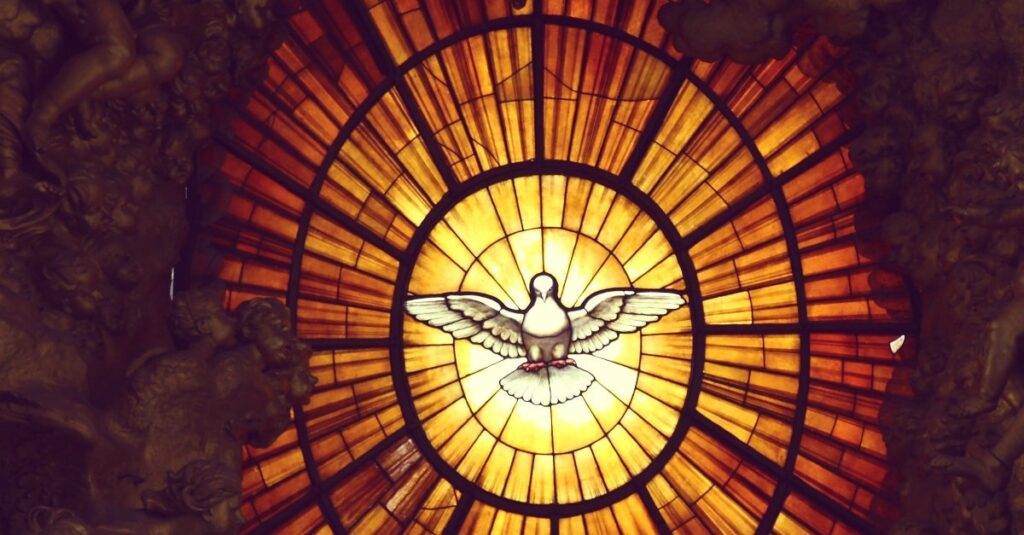
Old Testament Prefigurations
The Holy Spirit painted vivid pictures of baptism throughout the Old Testament. My students often marvel at these powerful prefigurations when I explain them:
- The waters of creation, where God's Spirit moved over the waters, foreshadowing the new creation in baptism
- Noah's ark and the flood, which St. Peter explicitly connects to baptism's saving waters
- The crossing of the Red Sea, where God's people were liberated through water
- The crossing of the Jordan River into the Promised Land, prefiguring our entry into God's family
Jesus's Baptism in the Jordan
The Jordan River speaks volumes about God's plan for our salvation. Our Lord's choice of this location carries profound meaning. Here stood the very waters where Joshua led God's people into the Promised Land. When Jesus (whose Hebrew name matches Joshua) stepped into these waters, He revealed Himself as the New Joshua, leading us not to earthly territory but to eternal life.
New Testament Teaching on Baptism
The apostolic Church understood baptism's vital role in Christian life. Baptism and conversion were inseparably linked in their practice. You won't find the concept of an unbaptized believer anywhere in the New Testament writings.
St. Paul's letters particularly move me in their portrayal of baptism. He takes for granted that all Christians have received this sacrament. His words to the Romans and Colossians paint baptism as our mystical participation in Christ's death and resurrection. Through these sacred waters, we die with Christ and rise to new life.
The early Christians grasped something profound – baptism wasn't merely symbolic but a genuine encounter with God's grace. This sacrament brought forgiveness of sins, the Holy Spirit's presence, and new life in Christ. Our Lord Himself taught this truth to Nicodemus, speaking of being “born of water and the Spirit”.
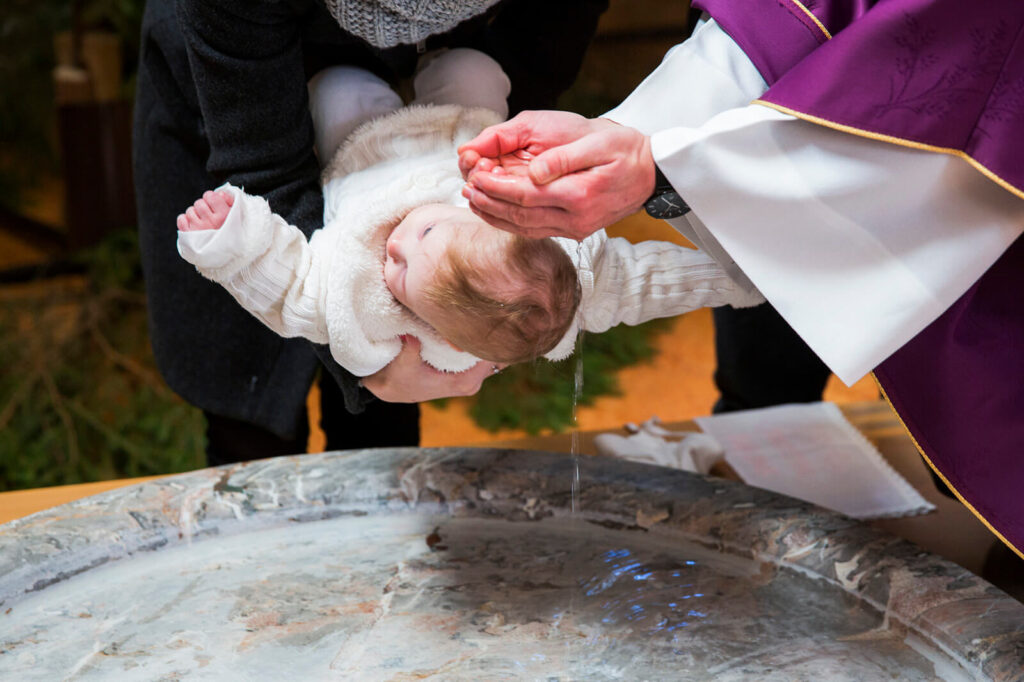
The Theology of Catholic Baptism
The beauty of Catholic baptism never ceases to amaze me. My years teaching sacramental theology have shown me how this first sacrament does far more than symbolize our faith – it fundamentally transforms the human soul through divine grace.
Cleansing from Original Sin
The waters of baptism bring complete cleansing from original sin. During my classes, students often struggle to grasp this profound reality. This cleansing reaches beyond removing a spiritual stain – it fundamentally changes our very nature. Catholic doctrine teaches us we inherit a fallen nature from Adam, coming into this world separated from God. The baptismal waters bring about a spiritual rebirth, breaking these chains of separation.
Incorporation into Christ's Body
The mystery deepens as baptism incorporates us into the mystical Body of Christ. This sacred incorporation brings forth remarkable fruits:
- We become living stones in God's spiritual house
- We share in Christ's royal priesthood
- We join the one People of God that transcends all natural boundaries
Reception of Sanctifying Grace
The pearl of greatest price in baptism lies in sanctifying grace. This precious gift transforms our souls in remarkable ways:
- It enables us to believe in God and hope in Him
- It gives us power to live under the Holy Spirit's guidance
- It allows us to grow in goodness through moral virtues
Sanctifying grace makes our souls holy and pleasing to God. The Holy Spirit takes up residence within us, fashioning us into new creations in Christ. His presence heals our wounded nature and makes us holy.
These effects last forever – baptism stamps an indelible mark upon our souls. Even should we wander into sin's darkness, this spiritual seal testifies to our belonging to Christ. This permanent character explains why Catholic baptism happens only once.
The wonder of it all rests in knowing this grace flows not from our merit but purely from God's generous heart. Through baptismal grace, we become adopted children of God, sharing in His divine nature.
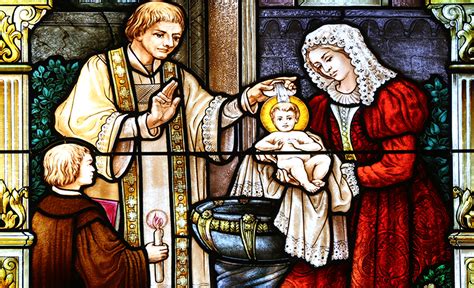
Effects of Baptismal Grace
The gifts of baptismal grace never fail to stir my heart. Each time I witness a baptism, I marvel at how this sacred moment transforms souls and binds us eternally to God's family.
Becoming Children of God
Something extraordinary happens at the baptismal font – we become adopted children of God. My eyes often fill with tears watching parents dress their little ones in white garments, knowing this outward sign reflects an inner reality: the soul clothed with the Holy Spirit. This gift of divine adoption shapes our entire earthly pilgrimage.
The fruits of this adoption amaze me:
- We receive power to become authentic children of God
- We gain access to call God our Father
- We inherit the promise of eternal life
Temple of the Holy Spirit
The mystery deepens as baptismal grace turns our very being into sacred ground. Like stones carefully placed in a master builder's hands, we become living temples, spiritual houses. The Holy Spirit claims us as His dwelling place, making us:
- Sharers in divine life
- Recipients of sanctifying grace
- Vessels of God's presence
This divine presence guides our steps. The Holy Spirit shapes our character through moral virtues, much like a skilled artist working with precious materials.
Member of Christ's Church
Baptismal grace draws us into the greatest family ever known – Christ's mystical body. This membership shatters every human barrier of nation, culture, race, and gender. We belong no longer to ourselves but to Him who conquered death for our sake.
Such membership brings precious gifts:
- We share in Christ's prophetic and royal mission
- We become part of a chosen race and royal priesthood
- We gain access to all spiritual helps of the Church
The mark of baptism remains forever – like a divine seal that no sin can destroy. This permanent character configures us to Christ and binds us to the Church's holy worship. Through these sacred gifts, God equips us for our Christian journey with grace beyond measure.
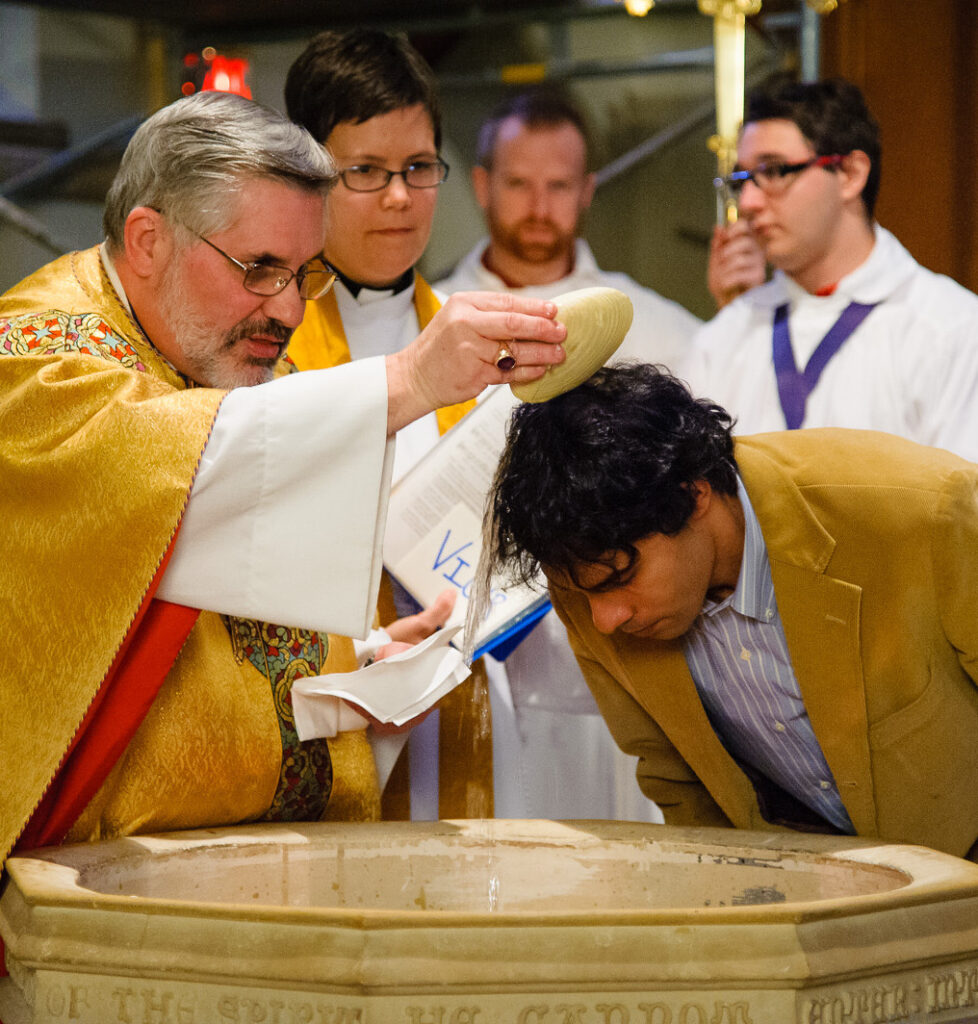
Essential Elements of Valid Baptism
My years serving as a catechist have taught me the vital importance of understanding what makes a baptism valid. The Church, our wise mother, gives us clear guidelines that safeguard this gateway sacrament.
Matter and Form
The simplicity of baptism's material requirements strikes me as beautiful. Only natural water serves as valid matter – whether warm or cold. The words must follow the exact formula: “I baptize you in the name of the Father, and of the Son, and of the Holy Spirit”. The Church permits no variation from these words.
Four elements must come together:
- Natural water only (no other liquids)
- Water touching the person's head
- Complete Trinitarian formula spoken exactly
- Words accompanying the water's application
Minister of Baptism
The Church shows remarkable wisdom in her rules about who may baptize. While priests and deacons normally perform this sacred duty, anyone may baptize in emergencies. The arrangement follows this pattern:
Ordinary ministers (standard situations):
- Bishops
- Priests
- Deacons
Extraordinary ministers (emergencies):
- Any person
- Even non-Catholics or non-believers
Intention Required
The heart of valid baptism lies in proper intention. The minister must simply intend what the Church intends when baptizing. This requirement holds true regardless of the minister's personal faith.
The intention must include:
- Willing to do what the Church does in baptism
- Understanding it surpasses mere symbolism
- Desiring to incorporate someone into Christ's body
Our Catholic faith teaches that sacraments work ex opere operato – by the very doing. The minister's personal holiness, while important, cannot invalidate the sacrament.
These requirements protect baptism's power as our doorway to all other sacraments. Each time I witness these elements come together at the font, I see the Church's wisdom in preserving Christ's intentions for this saving sacrament.
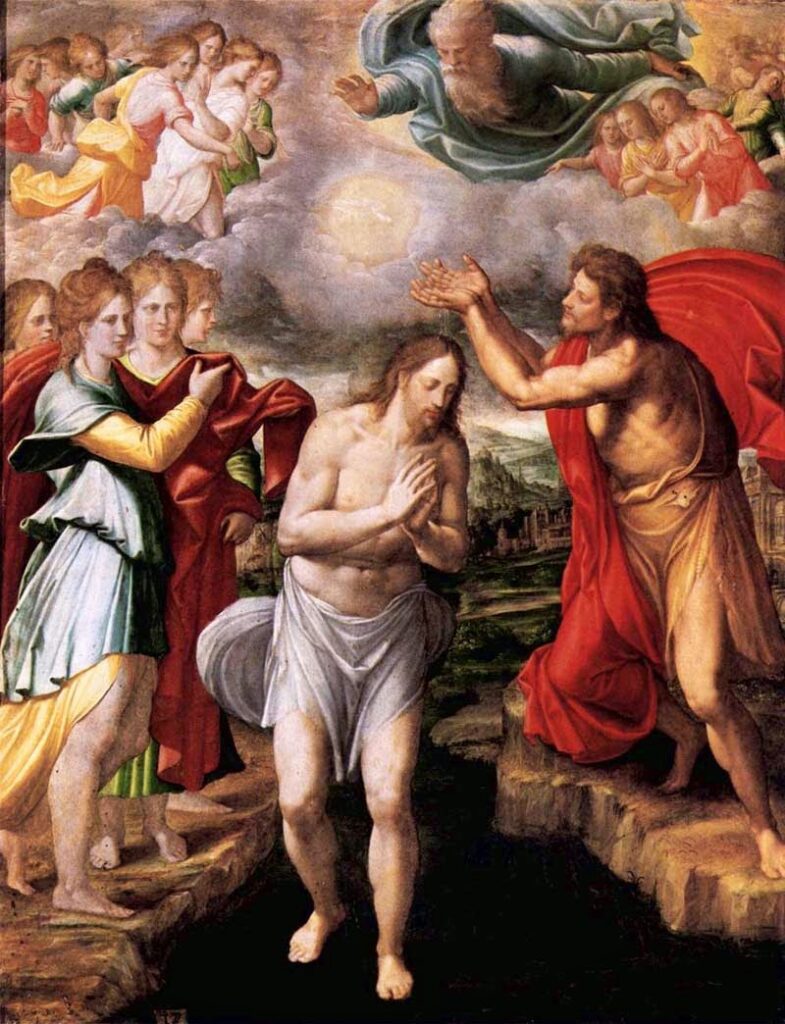
Necessity of Baptism for Salvation
My heart often trembles at the gravity of Our Lord's words about baptism is necessary for salvation. Such a stark truth requires careful understanding, wrapped in the infinite tenderness of God's wisdom and mercy.
Ordinary Means of Salvation
The teaching strikes deep – sacramental baptism stands as the sure path our Lord gave us for salvation. His words echo through centuries: “Unless a man be born again of water and the Spirit, he cannot enter into the kingdom of God”.
Standing at countless baptismal fonts, I've witnessed this saving reality unfold:
- Souls receiving sanctifying grace
- Hearts opening to future sacraments
- Lives joining Christ's mystical body
Baptism of Blood and Desire
God's mercy, though, reaches beyond our understanding through baptism of blood and baptism of desire. These extraordinary paths reveal divine love's boundless reach:
Baptism of Blood:
- Crowns unbaptized martyrs who die for Christ
- Bears baptism's fruits without the water
- Unites souls to Christ through sacrifice
Baptism of Desire:
- Springs from perfect love of God
- Carries at least implicit longing for baptism
- Embraces those who would choose baptism if they knew
God's Universal Saving Will
The mystery deepens – while upholding baptism's necessity, we glimpse God's power reaching beyond sacramental bounds. Those who never knew Christ or His Church, yet seek God with sincere hearts and follow His will as they understand it, may find salvation.
Divine mercy extends especially to:
- Catechumens called home before baptism
- Souls who never heard Christ's name
- Little ones who die unbaptized
This truth fills me with wonder – God binds salvation to baptism, yet remains unbounded by His own sacraments. Such mystery reveals both baptism's vital importance and mercy's limitless reach.
Teaching these truths over years has shown me how they comfort both the baptized and those praying for unbaptized loved ones. The ordinary path shines clear through water and Spirit, while God's mercy reaches into extraordinary circumstances with saving grace.
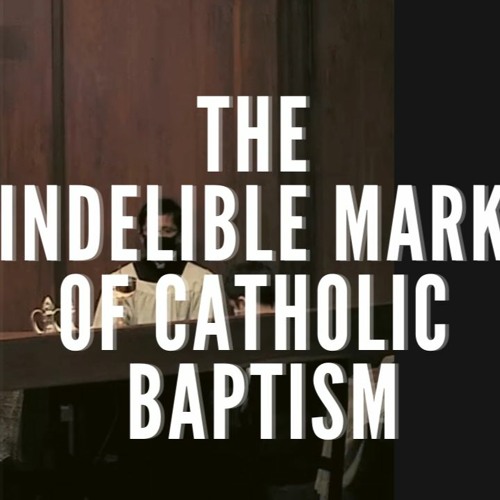
The Indelible Spiritual Mark
The mystery of baptism's permanent mark never ceases to amaze me. Each time I stand at the baptismal font, watching water cascade over a new child of God, my mind turns to this divine seal that reaches into eternity itself.
Permanent Character of Baptism
Something miraculous happens when baptismal water touches our head – God stamps us with an extraordinary supernatural mark that becomes woven into the fabric of our being. Like a divine artist's signature, this spiritual seal remains forever etched in our soul, marking us indelibly as Christ's own.
The baptismal character works in our souls like a master key:
- It configures us permanently to Christ
- It marks us as authentic children of God
- It consecrates us for Christian worship
- It empowers us to participate in Church life
Cannot Be Repeated
The permanence of this spiritual seal means Catholic baptism can only be received once. You might as well try to be born twice from your mother's womb as attempt to “redo” a valid baptism.
Two unchangeable truths support this teaching:
- The first valid baptism permanently transforms the soul
- The spiritual mark can never be erased or diminished
Attempting to repeat baptism would question God's initial work. Our Christian identity flows not from our own faithfulness but from this indelible mark of belonging to Christ.
Eternal Bond with Christ
This permanent seal forges an eternal bond between us and Christ that surpasses all earthly ties. Like a father's unconditional love, this spiritual mark stands as God's eternal promise never to reject His children.
The beauty of this bond takes my breath away:
- Even grievous sin cannot erase our fundamental identity as God's children
- Our belonging to Christ and His Church endures forever
- We retain an unbreakable connection to God's family
My students often find comfort knowing this baptismal seal strengthens our very capacity to know and worship God. Picture it as heaven's floodgates opening, pouring grace into our earthly journey and beyond.
The Church guards this teaching like a precious pearl. Far beyond mere rules, it speaks to the awesome reality of what God accomplishes in baptism. Just as a soldier's insignia marks permanent belonging to their service, the baptismal character claims us eternally for Christ. Yet this mark reaches deeper than any earthly badge – it transforms our very identity.
Most wonderfully, this spiritual seal flourishes in eternity. Heaven doesn't erase our baptismal character – rather, it brings it to full flower as we join the eternal liturgy. This mark becomes the foundation stone of our endless communion with the Trinity.
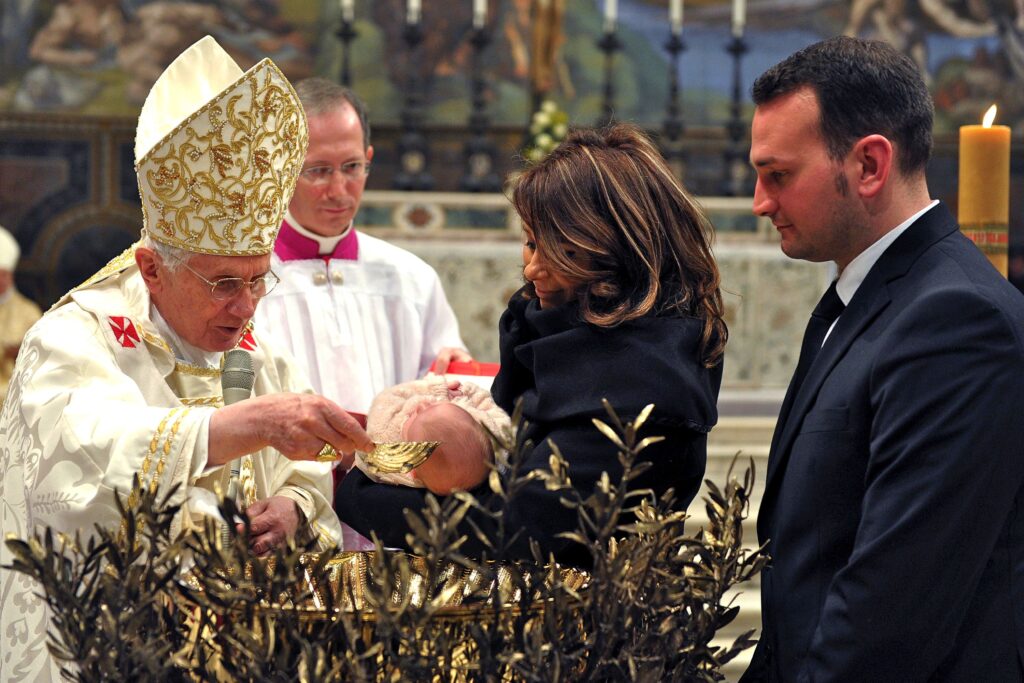
Conclusion
Standing at the baptismal font still fills me with wonder. Catholic baptism transcends mere ritual – it marks the moment God claims us as His own children. My heart leaps each time I witness this first sacrament wash away sins and incorporate another soul into Christ's mystical body.
The grace of baptism reminds me of a mountain spring – though water touches us once, divine life keeps flowing through our days. Like my own baptismal certificate tucked safely away at home, this sacrament marks us eternally as God's own, unlocking the treasure chest of Catholic life and all other sacraments.
Perhaps you're reading these words wondering about your own baptism. Take a moment to ponder this incredible gift. Those waters carried more than meets the eye – they bore heaven's own life into your soul. If you haven't yet received this sacrament, my friend, your local parish stands ready to welcome you into God's family. The same waters that have flowed since Christ's time await to make you new.
The holy water font at church reminds me of a precious truth – baptism speaks not just of past grace but of present identity and future glory. Each blessing with those sacred drops echoes your baptismal dignity as God's beloved child. This gift, sealed by the Holy Spirit, remains yours forever. No power in heaven or earth can erase what God has written on your soul.
Stephen K. Ray has written an excellent, approachable book on his conversion to the Faith called Crossing the Tiber that explores the biblical and historical basis for our understanding of baptism. It's available on Ignatius Press, and I highly recommend it.
FAQs
Q1. What is the significance of baptism? Baptism is the first sacrament that marks a person's entry into the Church. It cleanses the soul from original sin, incorporates the individual into Christ's body, and bestows sanctifying grace, making one a child of God and a member of the Church.
Q2. Can anyone perform a baptism? While priests and deacons are the ordinary ministers of baptism, in emergency situations, anyone can perform a valid baptism. The person baptizing must use natural water, say the correct words, and intend to do what the Church does in baptism.
Q3. Is baptism necessary for salvation according to Catholic teaching? The Catholic Church teaches that baptism is necessary for salvation, as it is the ordinary means of receiving sanctifying grace. However, the Church also recognizes extraordinary situations such as baptism of blood (martyrdom) and baptism of desire, acknowledging God's mercy extends beyond the sacraments.
Q4. Can a person be baptized more than once in the Catholic Church? No, baptism can only be received once. It leaves an indelible spiritual mark on the soul that cannot be erased or repeated. This permanent character configures the person to Christ and marks them as belonging to God's family for eternity.
Q5. What are the effects of baptismal grace? Baptismal grace has several profound effects: it makes the person a child of God, transforms them into a temple of the Holy Spirit, and incorporates them as a member of Christ's Church. These effects enable the baptized to live under the Holy Spirit's guidance and grow in moral virtues.
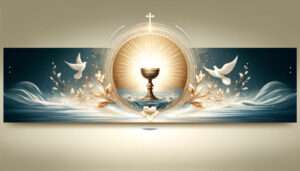
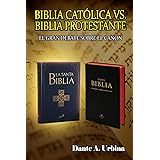





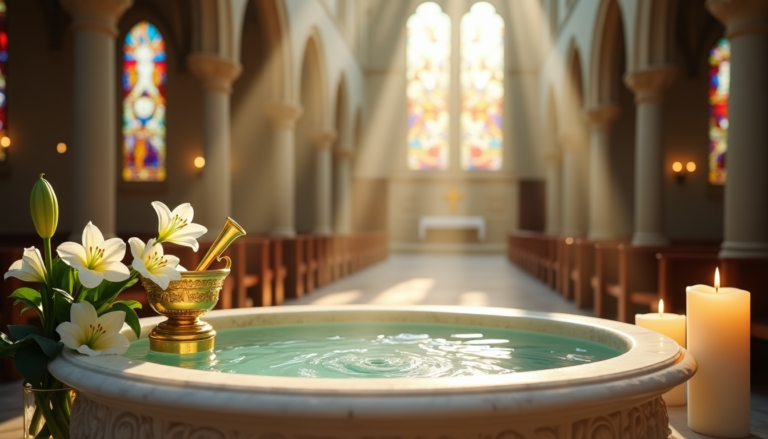
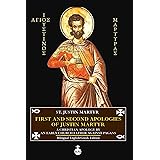
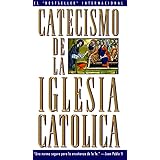




One Response